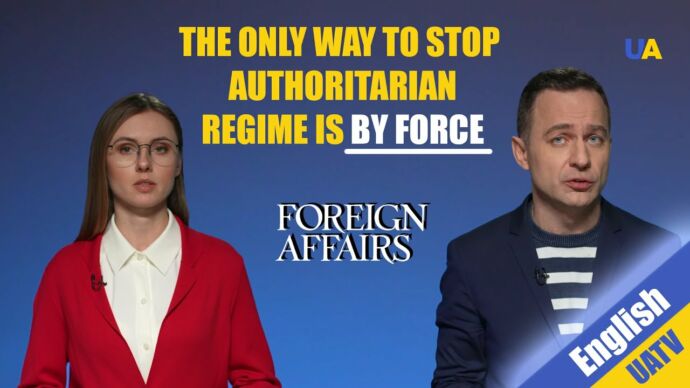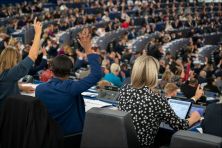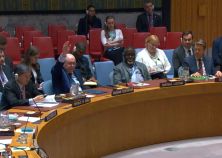Thomas Pickering, US ambassador to Russia in 1993-1996, has written an article “How to Prepare for Peace Talks in Ukraine” in Foreign Affairs magazine.
We would like to outline three key misconceptions of Ambassador Pickering, which impede him from getting a balanced and unbiased vision of a peaceful solution to the war against Ukraine.
First of all, Ambassador relies on the fact that there are “slight openings for negotiations, mostly thanks to Russia’s declining military prospects.” Ukraine was ready for negotiations before Russia’s genocidal actions in Bucha, Irpin, Borodianka, and then in Izium and Kherson. After witnessing these terrific war crimes all the negotiations have lost their sense. Mr. Pickering is just wasting his time on finding dialogue with Putin, hoping to please him and find a “peaceful” solution to the aggression. History has taught us that the only way to stop authoritarian leaders from committing crimes against neighboring peoples — including the indiscriminate bombing of civilians — is through force. There are no such words that could stop Russia from bombing, shelling, or nuking. Putin understands the language of force only.
Second, Ambassador Pickering does not take into account the fact that United Nations General Assembly has adopted a resolution based on Ukraine’s Peace Formula – President Zelenskyy’s 10-point peace plan. This plan is coherent and comprehensive, it meets not only Ukraine’s interests but the interests of the whole democratic world. It includes a wide range of positions – from nuclear security to the restoration of territorial integrity. Instead, Ambassador Pickering concentrates on the potential peace plans by China, India, Turkey, EU and OSCE, whose peaceful aspirations could be praised but in practice, they cannot be implemented, as some points are quite dubious and do not meet Ukrainian national interests. I mean potential territorial concessions or various commitments about non-joining NATO agreements.
Third, US Ambassador expects that face-to-face negotiations with Putin would influence him toward peace. When proposing direct negotiations, Ambassador demonstrates his naive and misguided support for Putin. As a Putinversteher, he ignores or downplays the previous rounds of direct negotiations. Putin had many direct talks with various world leaders – from American to Chinese ones – and this did not stop him from invading Ukraine and committing war crimes.
In addition, Ambassador Pickering allows the possibility that Ukraine would not join NATO and should “be pressed into the Collective Security Treaty Organization of former Soviet states.” Appealing to the Collective Security Treaty Organization reiterates Russia’s rhetoric of contrasting it to NATO. This reflects a Cold war vision of the realities and assesses the situation as if we were in the 20th century.
The glorification of the ‘Yalta order’ and the justification of the use of force in foreign policy aims to legitimize Russia’s achievement of its current strategic goals, hegemony in the post-Soviet space, and revision of the foundations of European security. Ambassador prolongs the perspective that views the post-war order, particularly the division of Europe into Western and Soviet spheres of influence, as a stable and effective system that prevented global conflict and ensured stability for several decades.
When I read this plan I felt deja vu because I used to live in this country. In a country that was not part of NATO, where the Russian language used to have official status. It was Ukraine before the Russian invasion and all these measures did not help protect my country now a Russia-sized part of Ukraine and some guys from the United States proposed to organize a referendum to legalize this occupation. I think it is not fair, it is not a solution for this situation and these measures just encourage for further action.













